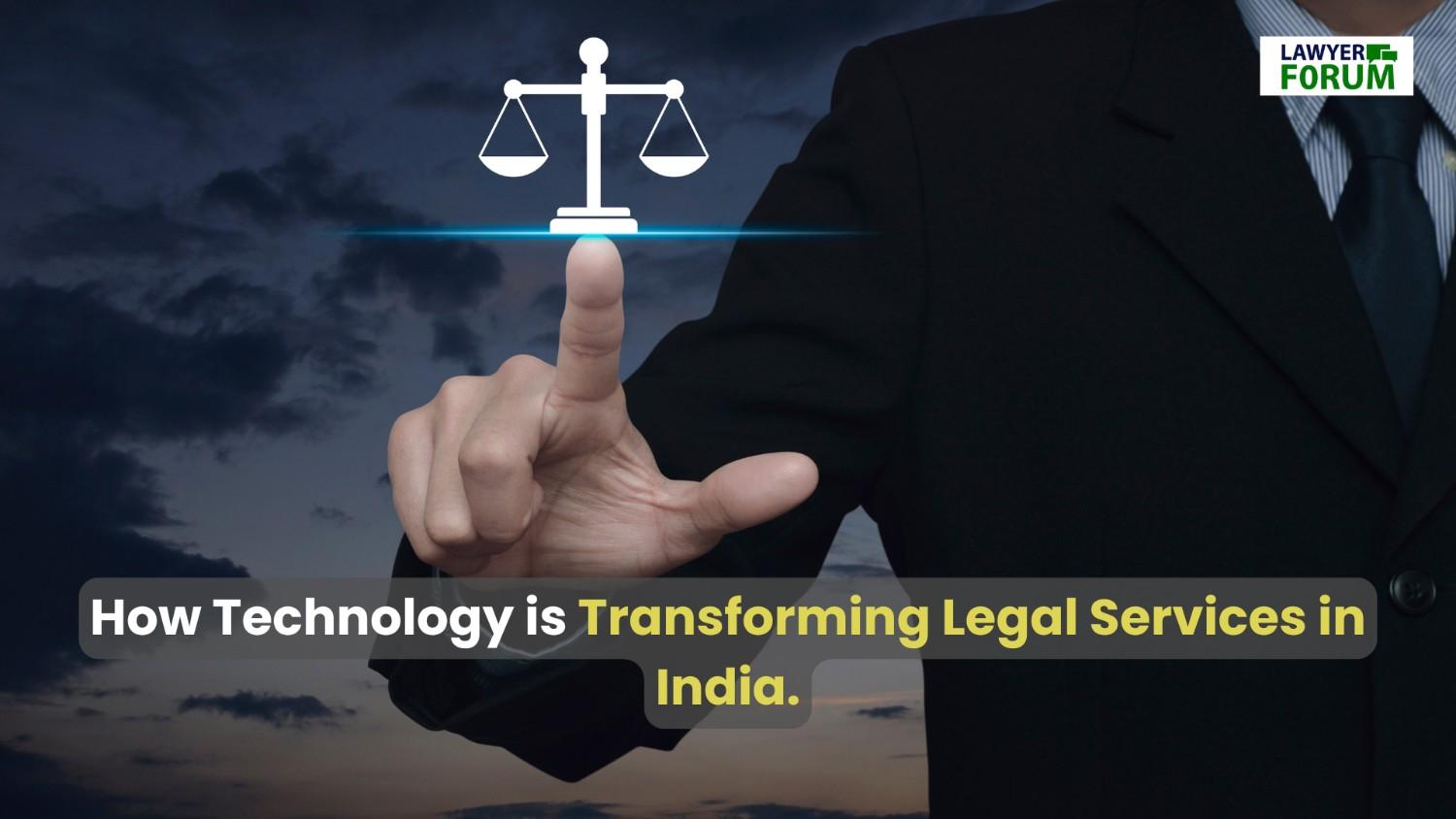· Technology · 4 min read
How Technology is Transforming Legal Services in India
Discover how technology is revolutionizing legal services in India. From AI-driven legal research to virtual courts and online dispute resolution, explore the digital transformation of the Indian legal sector.

Technology is rapidly transforming industries worldwide, and the legal sector in India is no exception. From AI-driven legal research to virtual courts, digital advancements are making legal services more accessible, efficient, and cost-effective. This article explores how technology is revolutionizing legal services in India and what the future holds for this digital transformation.
The Digital Transformation of Indian Legal Services
The Indian legal sector, traditionally known for its reliance on paperwork and in-person consultations, is undergoing a massive shift toward digital solutions. With the rise of legal tech startups and increased adoption of online services, clients can now access legal assistance from the comfort of their homes.
Online Legal Consultation Services
Legal consultations have moved online, making legal help more accessible to people across the country. Platforms like LawRato, VakilSearch, and MyAdvo offer virtual consultations with lawyers, saving clients time and money while expanding the reach of legal professionals.
Artificial Intelligence in Legal Research
AI-powered tools like Manupatra and SCC Online are helping lawyers conduct legal research more efficiently. These tools use machine learning to analyze case laws, predict legal outcomes, and provide relevant case references in seconds, significantly reducing the time spent on manual research.
Blockchain and Smart Contracts
Blockchain technology is enhancing security and transparency in legal documentation. Smart contracts, which execute automatically when conditions are met, are gaining popularity in India, especially in business and property transactions, reducing the need for intermediaries.
E-Filing and Digital Case Management
The Indian judiciary is embracing digital case management with e-filing systems that allow lawyers to submit cases online. This reduces paperwork, speeds up the filing process, and improves case tracking and management.
Legal Chatbots and Automation
Chatbots are transforming client interactions in legal services. These AI-driven assistants answer legal queries, provide preliminary legal advice, and even guide users through legal processes, making legal services more user-friendly.
Cloud-Based Legal Solutions
Cloud computing enables lawyers and firms to store legal documents securely and access them from anywhere. It improves collaboration among legal teams and enhances efficiency in managing case files.
Cybersecurity and Data Protection in Legal Tech
With digitalization comes the challenge of cybersecurity. Indian law firms and courts are implementing data protection measures to safeguard sensitive client information, ensuring compliance with data privacy laws.
Impact of Legal Tech Startups
Legal tech startups in India are bridging the gap between legal professionals and clients. Companies like Legistify and LegalKart are simplifying legal processes and making legal services more transparent and affordable.
Online Dispute Resolution (ODR) in India
ODR platforms are gaining popularity for resolving disputes without going to court. This method is particularly useful for business disputes, consumer complaints, and family matters, providing a faster and more cost-effective alternative to traditional litigation.
Virtual Courts and Digital Hearings
The COVID-19 pandemic accelerated the adoption of virtual courts in India. Digital hearings have improved accessibility, allowing cases to be heard remotely, reducing court congestion, and speeding up justice delivery.
Technology in Legal Education and Training
Online legal courses, webinars, and AI-driven training modules are transforming legal education in India. Platforms like iPleaders and LawSikho are equipping law students and professionals with the skills needed for a tech-driven legal landscape.
Future of Technology in Indian Legal Services
With advancements in AI, blockchain, and cloud computing, the future of legal services in India looks promising. Legal professionals must embrace these technologies to stay competitive and improve service delivery.
Conclusion
Technology is reshaping the Indian legal sector, making it more efficient, accessible, and transparent. As legal tech continues to evolve, embracing these innovations will be key to modernizing legal services and ensuring better access to justice.
FAQs
How is AI impacting the legal profession in India?
AI is automating legal research, contract analysis, and case prediction, making legal work faster and more efficient.Are online legal consultations reliable in India?
Yes, many reputed platforms provide verified legal professionals for virtual consultations.What are the benefits of virtual courts in India?
Virtual courts reduce delays, improve accessibility, and help in clearing case backlogs.How secure are cloud-based legal solutions?
With advanced encryption and cybersecurity measures, cloud-based legal solutions ensure data security and compliance.Will technology replace lawyers in the future?
No, but it will enhance their efficiency by automating repetitive tasks and improving case management.



